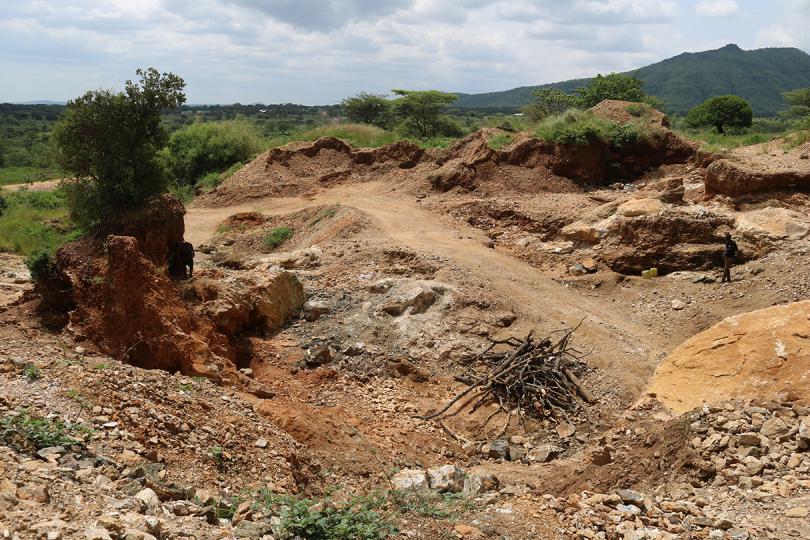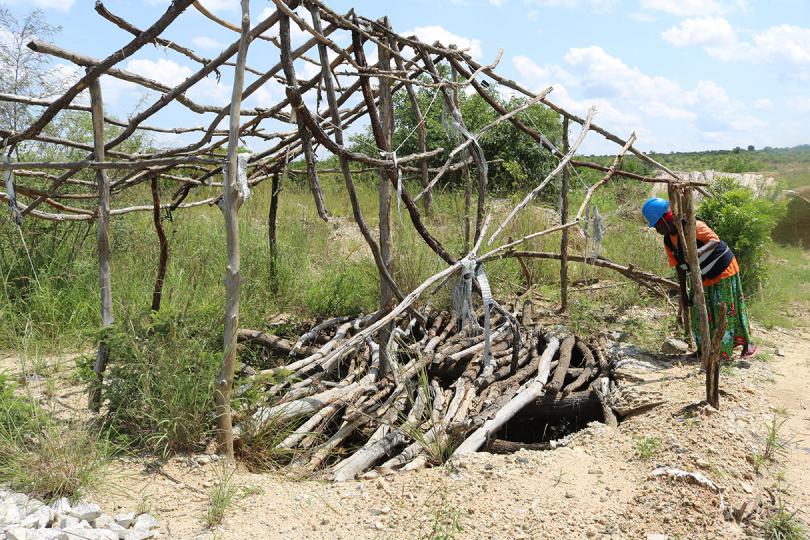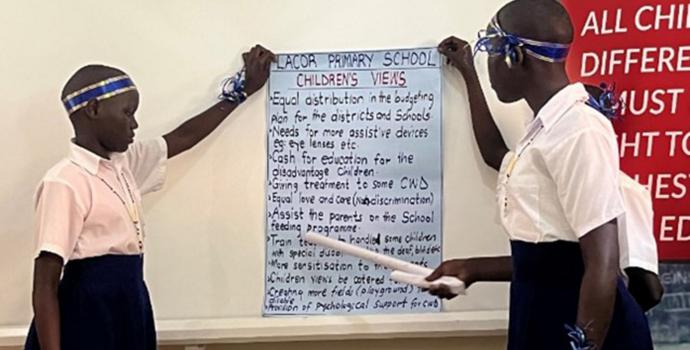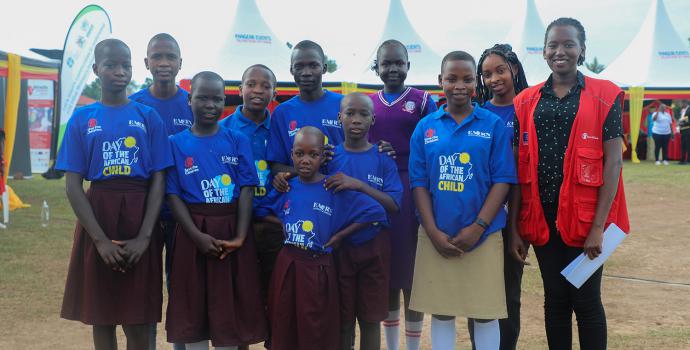1,723 children withdrawn from the mines in Karamoja.

Kevin Aleper, a skilled youth at Nakiloro trading centre, a few kilometers to the Uganda-Kenya border, says while growing up in the conflict-stricken area, she was always worried about what the future held for her.
Life was bad so she decided to go to the mining areas to earn a living. “On arrival in the mining area as a child, I went through harsh conditions and was made to carry heavy stones and pan soil to search for gold till late in the evening,” Aleper recalls.
“I suffered a lot under the hot sun and sometimes rain and the money I got was not enough to sustain my life coupled with the hard labour in the mining areas. There was no money for treatment when stones hit one in the pits.” She adds.
In 2019 when the Work No Child Business (WNCB) project started, Aleper got a sigh of relief. “When WNCB came to the mines asking children to abandon mining since hard labour was not a child’s business, I enrolled as a tailor,” she states, adding, “I knew this course would bail me out in the future and indeed it has helped. Life has completely changed for the better because daily I earn some money to take care of my child,”.
Every day, Aleper earns between 2,000 and 5,000 Uganda shillings. “My life has changed and the money I earn supports me and my parents,” Aleper asks children to abandon mines saying it is not a good place for them due to the abuses inflicted upon them. She emphasizes that child labour is bad and should always be challenged.
Anthony Loput, an elder from Ruba Sub Country says the project has done a great job in supporting the withdrawal of children from the mines. “The girl-child and women were the more affected in the mines,” he says, adding, “Men would defile girls and even rape women helplessly.”
Loput says whenever such atrocities happened, they would be very stranded because they did not know where to report such cases. “Some parents would send their children to the mines to fend for the families, but that is not the case now since most of them have understood that they are the future of every family. Several sensitization meetings were held to ensure children leave the mines,” Loput remarks.
Moses Angella, a teacher Nakiloro Communal School says WNCB has done a lot for the border villages which mainly depend on mining in the Sub counties of Rupa and Katikeikile. He adds that the project has reduced the burden/tough labour imposed on children over the years, an issue that has seen their lives change from despair.
“We do not want children to go back to the mines,” Moses states, adding that the mines have left many children with untold suffering, and trauma, and some others do not understand themselves. All is not lost as WNCB mentored us in each aspect of protecting children from hard labour.”

An abandoned marble mining area in Rupa sub-county, Moroto district due to lack of child labour.
Perenjula Nakiru, a parent says when the Save the Children intervened with support, she retrieved her children from the mines and does not want to see them there again. “These areas are so bad that children are subjected to hard labour,” she says adding that they end up earning very little at the end of the day.
Emmanuel Elungat, skilled in Carpentry and Joinery by, “Work No Child Business” – WNCB, says the turning point in his life arrived in 2020 when he enrolled for a six-month course. Emmanuel, who joined the artisanal mining industry at Nanyidik mining area in 2018, says child labour is bad and should not be entertained in the community because it devastates children.
“Being a young man, my employers placed me in the gold pit over 50 feet,” Emmanuel recalls, adding that he would also break huge marble boulders at a low pay. His life has changed over time since he left the mines. “This is a place I will never return to because I can now earn a living as a skilled youth,” he says. “Today I earn up to 20,000 shillings on a good day, and this money is helping support me and my parents.”
Hellen Adong, mobilizer, steering committee for Utut artisanal miners hails the consortium for facilitating the removal of children from the mines. “The parents had stopped fending for the families. Children were the breadwinners. But little did we know we they were endangered with tough labour.”
Carol Kharono, M & E coordinator for the project acknowledges change saying 1,723 children have been withdrawn from the mines since 2019. She says of these, 886 are girls, adding that all the children have gone through mentorship and are now attaining education in various schools.
“We intend to see children away from the mines acquire education because we have created an impact for them. They now have decent employment and WNCB has fixed in place male champions and mentors as part of the child protection strategy.” She says.
As part of the intervention, several para-social workers have been trained. Four steering groups have been created with over 105 members. On challenges, Kharono says food insecurity as a result of climate change is worsening the efforts of WNCB. Because of the prevailing poverty in the sub region, parents use their children as breadwinners. She says insecurity coupled with raids and attacks on villages also presents a great task for the implementation of the project.
Joseline Iriama, the project manager says the project has been very instrumental in ensuring children abandon the mines for school. “We want children to be free from hard labour,” Iriama says, adding that this contributes to the sustainable goal-SDG 8.

A deep gold pit covered by poles in Utut under the initiative of WNCB. Children have fallen into such holes in recent times.
About the project
Work No Child Business (WNCB) program is a coalition partnership between Hivos, Save the Children, Uganda National Teachers Union (UNATU), Nascent Research and Development Organization (NRDO), and Environmental Women in Action and Development (EWAD). The programme aims at ensuring that children and youth are free from child labor and enjoy their rights to quality education and (future) decent work hereby contributing to SDG 8.7. The program targets children categorized; between 05– 13years and 14 -18 years in the two districts of Nakapiripirit and Moroto.




